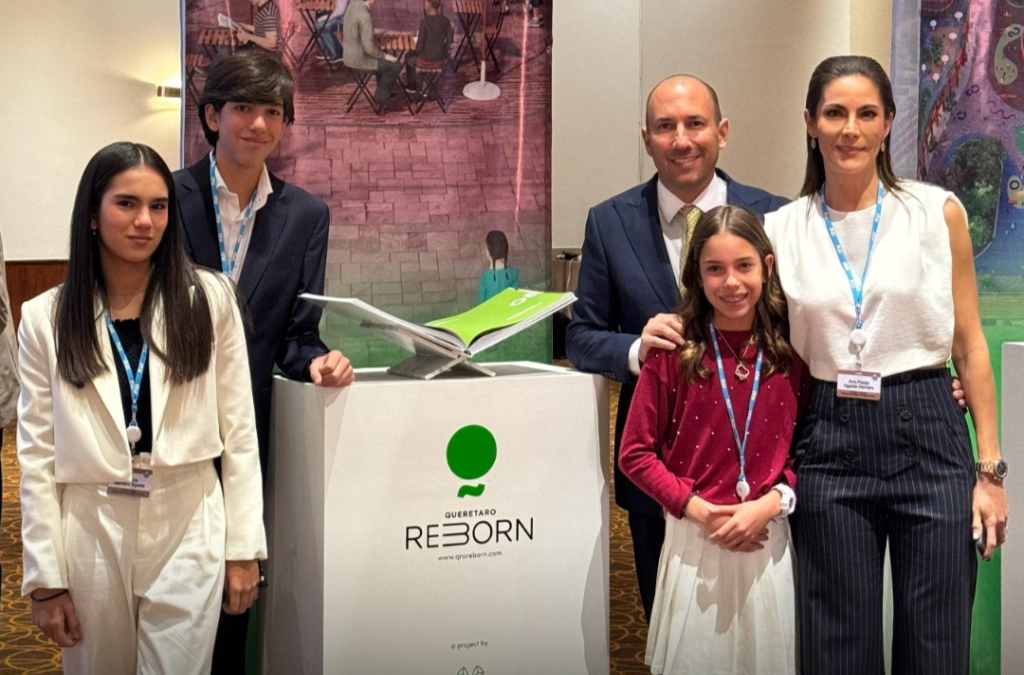Manuel Barreiro Castañeda stands as the founder and chairman of the Aston Group, a distinguished private equity firm boasting $1 billion in investments thus far. Specializing in real estate developments and private equity ventures, the firm concentrates its efforts on projects across North America and Europe.
With over two decades of profound experience in the global real estate realm, Mr. Barreiro Castañeda has emerged as a strategic visionary, renowned for his skillful guidance to both public and private sector entities. His expertise navigates on the intersection between technology, sustainability, mobility, and smart cities.
Furthermore, Mr. Barreiro Castañeda actively contributes to The International Telecommunication Union (ITU), the esteemed United Nations agency dedicated to information and communication technologies. Presently, he holds the esteemed position of Vice Chairman within the Metaverse Focus Group, a role dedicated to championing sustainability, accessibility, and inclusivity.
The ITU plays a key role in ensuring a sustainable digital transformation of cities around the world by providing an open and collaborative international platform, such as the 4th ITU Forum on “Shaping the CitiVerse: People-Centered Cities & Virtual Worlds,” which was held in Queretaro, Mexico, on March 4th, 2024.

Can you provide an overview of your presentation at the 4th ITU Forum and its key messages regarding the intersection of the Metaverse and smart cities?
At the 4th ITU Forum, ‘Shaping the Citi Verse: People-Centered Cities & Virtual Worlds,’ I had the opportunity of presenting my latest work, ‘Queretaro Reborn.’ This ambitious urban regeneration initiative aimed at revitalizing Downtown Queretaro stands out as the largest of its kind in the country.
Moreover, it marks a pioneering leap into the Metaverse realm within Mexico, promising an immersive firsthand experience for all stakeholders since they will be able to see the completed vision before any money is spent, ensuring sustainability for both current and future generations.
At its core, ‘Queretaro Reborn’ aims to enhance the quality of life for residents, foster job creation, foster community cohesion, and drive significant public, social, and economic value. Notably, the project will introduce 11,000 new trees to the cityscape, curbing over 200,000 tons of CO2 emissions annually. It will also allocate 235,000 square meters for affordable housing, dedicate 35,000 square meters to sports and communal areas, reclaim over 40,000 square meters of pedestrian zones, and establish 49 parking areas to alleviate street congestion—all while doubling the city’s green spaces.
The forum emphasized people-centered cities and virtual worlds. How can smart cities ensure that technology is developed with a human-centric focus, and what role does the Metaverse play in achieving this goal?
Utilizing technologies such as the Metaverse in the strategic planning of smart cities significantly enhances the likelihood of successful implementation. By leveraging these tools to simulate and test various scenarios before execution, the potential for achieving optimal outcomes is greatly amplified. Furthermore, the use of such technologies fosters the development of sustainable projects, both in the short and long-term scenario, thereby enhancing the overall quality of life for residents while reducing socio-economic disparities.
The Forum discussed the unique challenges and opportunities in the Latin American region. Could you elaborate on some of these challenges and how they can be addressed to harness the potential of the vibrant tech sector in the region?
At the forum, we dived into the main issues Latin America faces in technology, with the foremost being the lack of infrastructure, making it tough to provide services to most people. Another notable challenge is the limited regional capacity and accessibility, impacting individuals with disabilities and women who struggle to access technology. To tackle these hurdles, we need smart policies and their corresponding implementation along with improved infrastructure across the region.
One of the forum’s goals was to explore the seamless integration of people into virtual worlds. How can smart cities effectively integrate residents into the Metaverse while considering accessibility, inclusivity, and privacy?
To effectively include residents into the Metaverse within smart cities, we must prioritize accessibility, privacy, and inclusivity. This means ensuring that everyone, including those with disabilities, can use and access the Metaverse easily. It is essential to protect people’s privacy by providing them the control over their data, always adhering to strict rules and regulations in this matter. Additionally, we need to make the virtual world a welcoming environment for all, making sure that diverse cultures and backgrounds are respected and included. If we follow these principles, we can create a Metaverse that provides advantages to all individuals and ensuring that everyone’s needs are addressed.

How can private enterprises and industry stakeholders collaborate with government bodies to ensure that the development of the Metaverse aligns with the broader goals of creating smarter and more livable cities?
An effective approach for private enterprises and industry stakeholders to collaborate with government entities would be the establishment of independent development and technology agencies that operate autonomously from the government but collaborate with various administrations over extended periods, each with specific objectives. This framework empowers the private sector to commit to long-term investments, ensuring that infrastructure and connectivity developments adhere to a well-defined, sustained plan throughout the years.
What are the key takeaways from the 4th ITU Forum, and how can these insights guide the future development of smart cities and their integration with the Metaverse?
The Forum provided deep conversation about the convergence of Metaverse technologies and smart cities, with a strong focus on crafting urban and virtual spaces that place the needs of individuals as a priority. The conversations revealed intriguing insights into how smart cities and the Metaverse can be incorporated to seamlessly include people in their virtual reality world. The panel discussion on the Latin American tech sector was especially enlightening, highlighting the genuine obstacles, and brainstorming solutions to harness the potential benefits of emerging technologies. Notably, this Forum marked the first time an ITU event was held in Latin America, adding to its significance.

